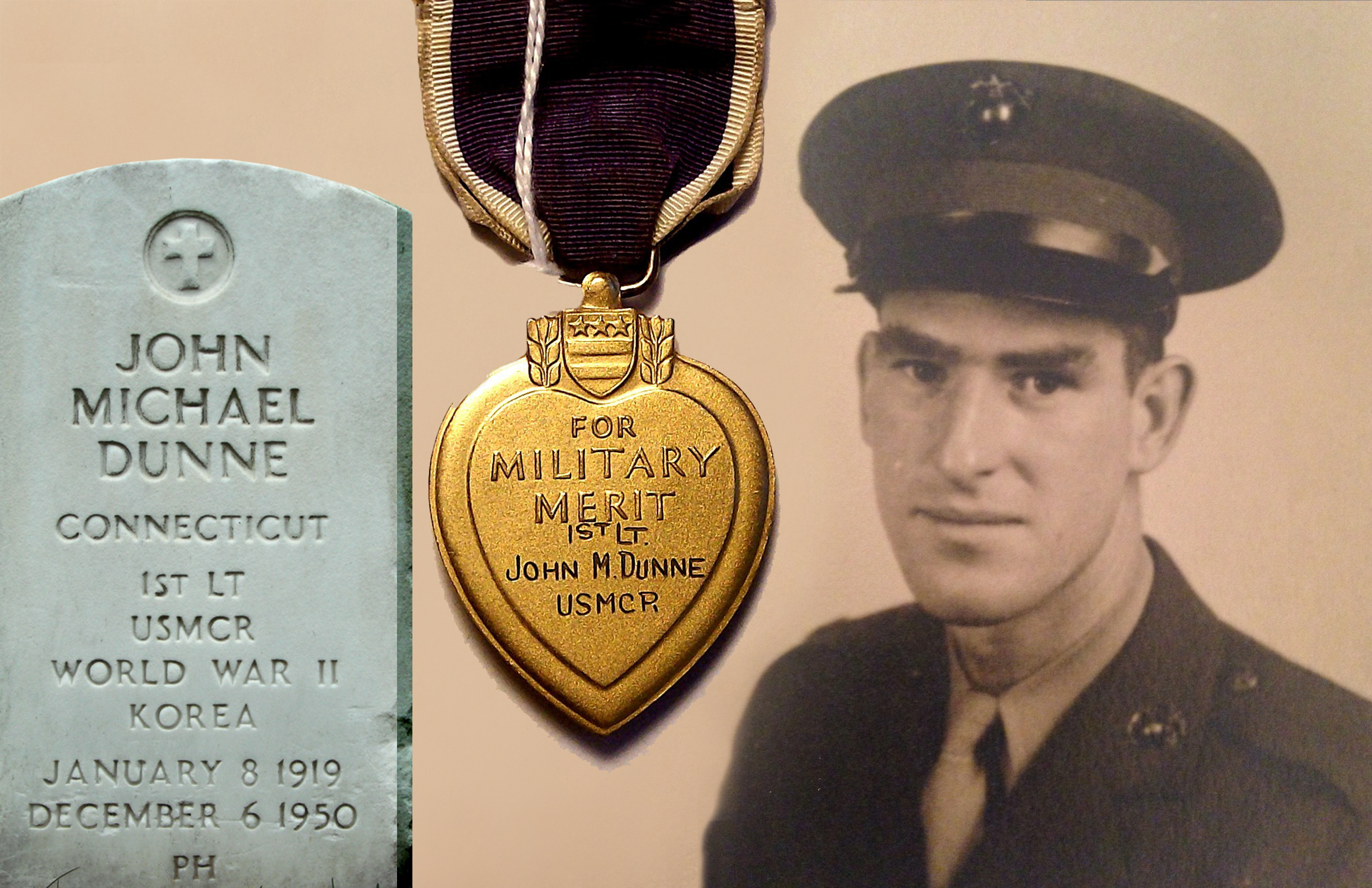Near the end of 1950, the Battle of Chosin Reservoir in Korea lasted seventeen days in freezing weather. Medical supplies froze, batteries used for the Jeeps and radios did not function properly, the lubrication in the guns gelled and rendered them useless.
First Lieutenant John Dunne was half a world away from home, facing combat in what was his second war as a member of the United States Marine Corps, having previously served in the Pacific Theater during WWII.
In the fighting, the Marines and other United Nations troops effectively destroyed or crippled seven Chinese divisions which attempted to block their progress. Though the Marine’s suffered casualties that included 12,000 wounded or afflicted by severe frostbite and 836 killed in action, including Lt. Dunne, this pivotal battle is considered a high point in the history of the Corps.
On Veteran’s Day November 11, Dunne’s Purple Heart will be presented to UConn, where it will be on permanent display in the Arjona Building, in the one of the central gathering rooms in the Office of Veterans Affairs and Military Programs.

The presentation on behalf of the WWII and Korean War hero will occur at 11:20 a.m. on campus at the Ultimate Sacrifice Memorial, which is located in front of Wilbur Cross, on the Great Lawn, a ceremony that is open to the public.
Another UConn alum, Major General Joseph S. Ward Jr., who recently retired from the U.S. Air Force, will deliver remarks. There will be a reception following the ceremony in Wilbur Cross.
Dunne has no surviving family members, so Purple Hearts Reunited donated his medal to the university where he graduated in 1942. Founded in 2012, Purple Hearts Reunited is a nonprofit agency founded to return lost or stolen military medals of valor to veterans or their families, in order to honor their sacrifice to the nation.
Dunne was born in Hartford to Matthew and Elsie Dunne. As a student at UConn, he was an active member of Alpha Phi Fraternity and served as editor of the Nutmeg Yearbook.
On the eve of Independence Day the year after he graduated from college, Dunne was commissioned into the United States Marine Corps and served in WWII.
After the war, he returned to UConn and taught English for a time before traveling to Dublin, Ireland, where he finished work to obtain his doctor of philosophy degree. He was planning to teach at Duquesne University in Pittsburgh, when, as a member of the Marine Reserve, was called to service in Korea.
During combat operations with the 2nd Battalion, 7th Marines, 1st Marine Division on December 6, Dunne was killed on Hill 902. In addition to the Purple Heart, he was decorated with the National Defense Medal, WWII Victory Medal, Korean Service Medal, Republic of Korea War Service Medal, and United Nations Service Medal.
He is buried in Arlington National Cemetery.



